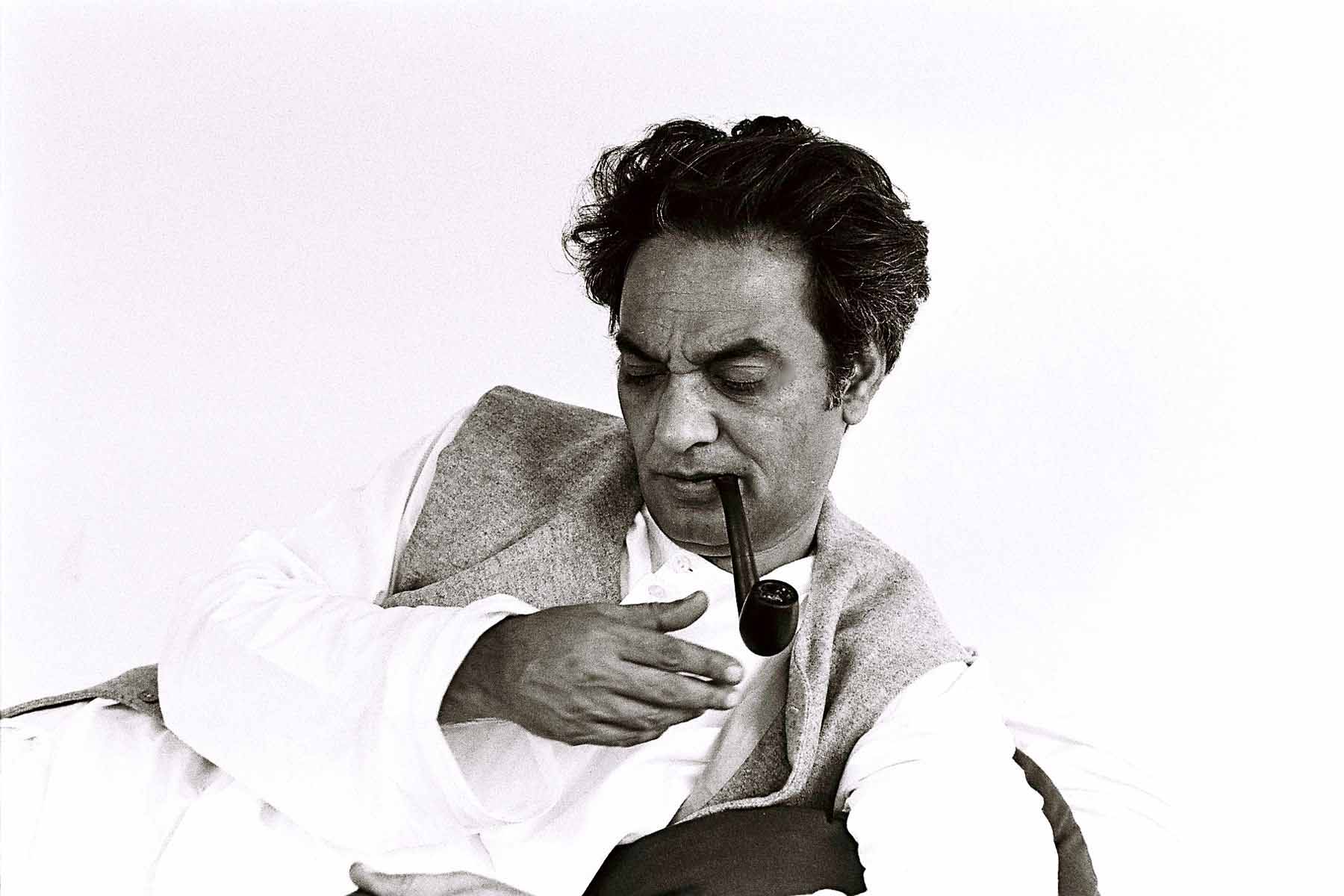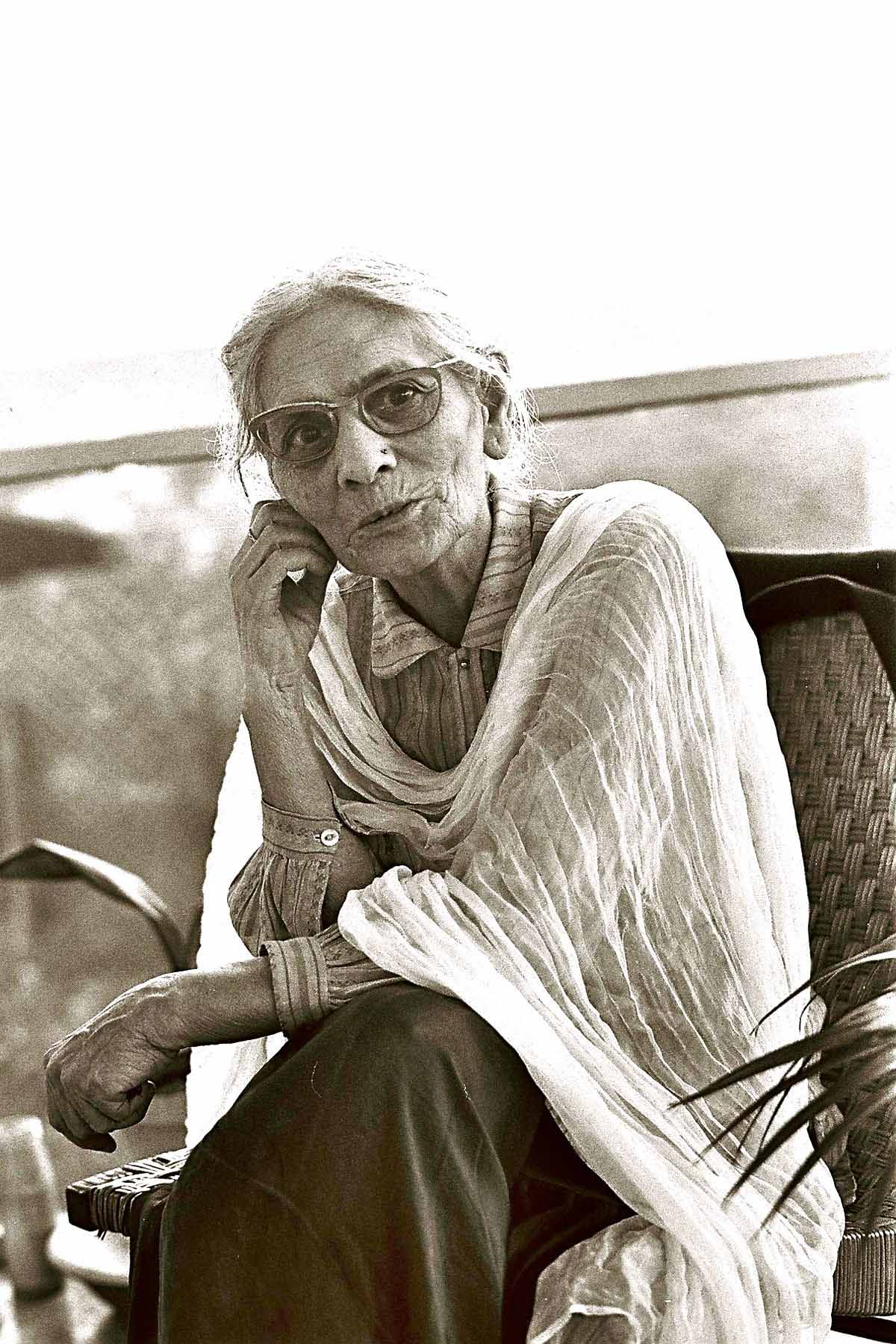Raza Kazim
I got to know Jamil Nishtar when Sardar Bahadur Khan came to Karachi and stayed with my uncle, and Jamil came to see him. Sardar Sahib was Chairman of Khyber Textile Mills Ltd and Khyber Insurance Company Ltd., both of which were registered at his home town at Abbotabad, though their head offices were in Karachi where we lived, and I was the Managing Director of Khyber Insurance Ltd. Jamil Nishtar was Vice President of UBL and later President of the National Bank of Pakistan. When we started Karachi Artists Gallery in a portion of our house, Jamil, who used to live near us in KDA Scheme No 1, used to drop in at our house on his way home from his office on Chundrigar Road where my office was also situated, and liked to spend evenings with artists.
One day Jamil Nishtar came with a request that a lady from Lahore was looking for a place where she could stay and study, because her fiancée had told her that he would marry her only after she had studied and understood ‘Das Kapital’ of Karl Marx, and Capt. Faiz Ahmed Faiz and Major Ishaque of the Rawalpindi Conspiracy case certified that she had done so. She had been sent to Karachi because the first wife of her fiancé has threatened to through acid at her if she found her in Lahore, and her fiancé could not keep her under his protection till he married her, which was conditional to her studying ‘Das Kapital’ of Karl Marx.
Faiz and Ishaque Sahib came many times to examine her progress with Karl Marx, and after some time Raza Kazim came and took her to Lahore. On the death of Major Ishaque, Faiz wrote a moving poem which began with the following verse;
Lo tum bhi gay ham nay to samjha tha kay tum nay
Bandha tha koy yaron say paiman-e-wafa aur
I developed a great admiration for Raza. Once a delegation of intellectuals had come for a literary festival in Karachi and on their way back home from Karachi via Lahore, they had a day to spare, therefore they asked me if they could visit Moenjodaro on the way. I told them that Moenjodaro was there, but that if they wanted to know about Pakistan, which was the purpose of their visit, then they should go straight to Lahore and meet Raza, as he had the most analytical mind that I knew in Pakistan.
The life of Raza was one of experiments with various things that he could do, and he could do almost anything and everything and did them well. He established the first ocean industry of its kind, which became the victim of envy. He went and lived in the slums next to Data Darbar to declassify himself. He established a photographic studio and became a great photographer, using Hasselblad’s and View Cameras. He also invented and manufactured a musical instrument, and sent his daughter to a school of music established by Ravi Shankar in the USA to augment her skill. He established the Amir Khusrau School of Music, but discarded it when he discovered the music of the Rishis, and organized a course in music for the National College of Art.
Raza was also a brilliant lawyer and was of great help when I got involved in a number of company law cases in Peshawar, Lahore and Karachi High Courts. My friends told me that, ‘Now you are in it for life, because the cases in Pakistan drag on forever’. But I replied that we had received the law from the British, and cases in Britain do not drag on. To find what we could do about it, I asked my lawyer and politician friend, Fatehyab Ali Khan, to have lunch with me at my office every day till we had figured out what we could do to get out of the stranglehold of my numerous law cases. We came to the conclusion that there was nothing wrong with the legal system. What was happening was that the system required the lawyers to inform the judges of the law and facts, but the lawyers came to the court without preparation, or knowledge of either the law or the facts of the case. Therefore when they asked the judges for adjournment they willingly granted it, in order to avoid writing a judgment on the basis of inadequate facts and points of law, which would be set aside in an appeal, and give them a bad name among the higher judiciary. Therefore we decided that I should advertise for a law secretary who should prepare the cases and applications for costs, in case the other side asked for adjournment. Once we started getting costs at every adjournment, the opposition stopped asking for adjournment and our cases proceeded without any delay. Further, my lawyers with their preparation were able to convince the judges that their judgment based on our submission would comprise correct facts and law, and receive praise from the higher judiciary. Thus we got through my cases in no time. For example, the Chief Justice of Peshawar High Court said to us that, if you had brought a criminal case I would have passed the order, but I am unable to do so with your company law case. But my lawyers were able to convince him that they had prepared an order which would bring him laurels from the higher judiciary, and he agreed to pass the order dictated by our lawyers.
I could now relax, and went to attend the graduation of my son at Harvard, where we took a flat for a month so that my wife and I could explore the Harvard and MIT Libraries for material on Pakistan for our books. There we again met Anne Marie Schemmel who was living in the same hostel as my son and was fond of him. On my way back I stopped in London to do further study in the British Library. One day while window-shopping on Oxford Street I bumped into the wife of the former foreign secretary who asked me if I knew that the law minister had married again. When I said yes, she asked me if I knew the lady and I told her all about my law secretary. Actually I came to know about it for sure when I arrived in Karachi and found on my table her handwritten letter of resignation smudged by her tears. I had guessed correctly, because I knew that two former law ministers and a Supreme Court judge were wooing her, since quite often she asked me to keep them at bay while she prepared my cases. It was a pity, because she was a clever lawyer and her ambition was to be a high court judge; but she had to opt for marriage with the best-known lawyer of the country and lived in luxury ever after first abroad and later in Pakistan.


